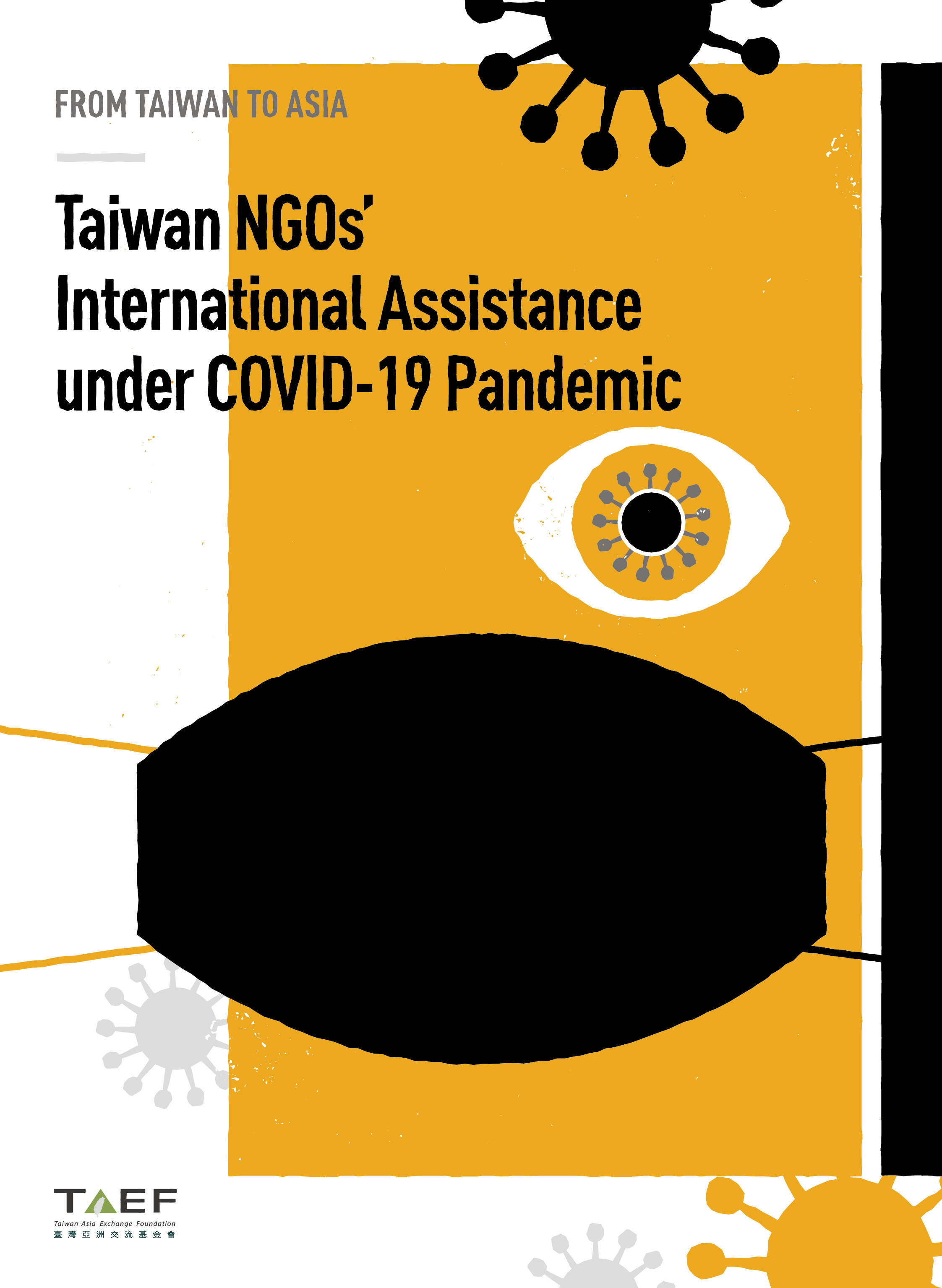Taiwan has seen a considerable growth of non-government organizations (NGOs) over the past decades. NGOs have not only concentrated on domestic issues but also actively participated in international development work. They have long provided services in Asia, covering education, medical care, humanitarian assistance, community development, and employment services, and have achieved fruitful results. The COVID-19 pandemic ravaged the world in 2020 and posed severe impacts on the economy and society of numerous countries. Vulnerable populations were pushed into further dire circumstances, and NGOs engaging in international cooperation and development faced numerous obstacles such as service interruptions, difficulties in resource delivery, and increased costs.
In face of the pandemic, related questions thus arose such as what countermeasures have the NGOs engaging in international cooperation and assistance in the New Southbound countries taken to ensure the continuation of their services, and what additional modes of assistance have they provided to the local communities. To this end, the Taiwan–Asia Exchange Foundation (TAEF) launched the TAEF Survey—Taiwan NGOs’ Responses to Covid-19 in Asia in 2021, and published From Taiwan to Asia: Taiwan NGOs’ International Assistance under COVID-19 Crisis, Taiwan’s first report of such topic that features both Chinese and English editions.
Through the survey, this report compiled the difficulties, response actions, and achievements of 30 Taiwan NGOs (23 NGOs and international assistance centers of 7 hospitals) in the New Southbound countries during the COVID-19 pandemic in 2020, and then summarized 10 major actions of these NGOs in their response to COVID-19: providing epidemic prevention supplies and health education; strengthening sanitary facilities and health systems; distributing daily necessities and cash relief; aiding in increasing income and re-establishing livelihoods; reducing psychological stress; initiating online services; developing mobile services; distributing learning resources and improving learning environments; offering emergency aid to mitigate the impact of compound disasters; and sharing Taiwan’s experience of containing outbreaks.
This report also presents the response strategies and service programs implemented by 12 NGOs in the various New Southbound countries and showcases the transnational health cooperation conducted by 7 hospitals in the One Country, One Center project of the New Southbound Policy. Lastly, this report analyzes the action characteristics and future work directions of the Taiwan NGOs, on the basis of which, we suggest Taiwan NGOs to establish a platform to advance collaboration and exchanges. Other suggestions include the government increasing resources to support the international development work of NGOs, incorporating international assistance into the New Southbound Policy, and establishing a national team with NGOs.
Since 2016, the Taiwanese government under President Tsai Ing-wen has promoted the New Southbound Policy. The policy adheres to the core spirit of long-term cultivation, diversified development, and mutual benefits and emphasizes the “people-centered” approach, aiming to advance collaboration with 18 countries, namely, the 10 ASEAN countries, 6 South Asian countries, Australia, and New Zealand. The relations are not limited to commerce and trade, but also include cultural and social exchanges and cooperation.
In the 2018 Yushan Forum, President Tsai Ing-wen advocated “Taiwan helps Asia, and Asia helps Taiwan” for the first time. Following the COVID-19 pandemic in 2020, the Taiwanese government further advocated “Taiwan can help,” and launched an assistance diplomacy by donating face masks and essential supplies and equipment to combat the pandemic to over 80 countries around the world. This report demonstrates that while the government officially collaborated and provided relevant assistance to the various countries, NGOs in Taiwan also spared no effort in lending a helping hand to local vulnerable groups either. These NGOs that conduct international cooperation and development in the New Southbound countries have become one of the most favorable connections between Taiwan and the partner countries, demonstrating the warm power of “Taiwan NGOs can help.”
The TAEF is Taiwan’s first policy-oriented think tank focusing on Southeast and South Asian affairs and also serves as the leading private platform for promoting the New Southbound Policy. It aims at integrating NGOs, think tanks, youth groups, and cultural communities to advance the relations between Taiwan and Southeast and South Asian countries and is committed to creating new mechanisms for regional cooperation among the Asian civil societies. We hope that through this report, the various sectors of the industry, government, and academia will have greater knowledge and understanding of Taiwan NGOs’ international cooperation and development work in the New Southbound countries, and can accordingly promote more innovative and diverse partnerships and strengthen the diverse connections between Taiwan and the New Southbound partner countries.
Lastly, on behalf of the TAEF, I would like to thank the 30 NGOs participating in this survey project and especially the 12 NGOs that provided detailed case information, which has enabled us to gain an in-depth understanding of their work and achievements in the New Southbound countries. In addition, I would also like to thank the Department of NGO International Affairs of the Ministry of Foreign Affairs and the NSP Project Office of Chung-Hua Institution for Economic Research for their assistance in distributing the questionnaire. The TAEF will continue to play its own role as a think tank and provide policy recommendations on the crucial role of Taiwan NGOs in the New Southbound countries. We anticipate the New Southbound Policy will continue to refine related programs on the basis of the “people-centered” approach, manifesting Taiwan’s warm power.
Hsin-Huang Michael Hsiao,
Chairman, Taiwan-Asia Exchange Foundation
TO READ THE FULL REPORT
